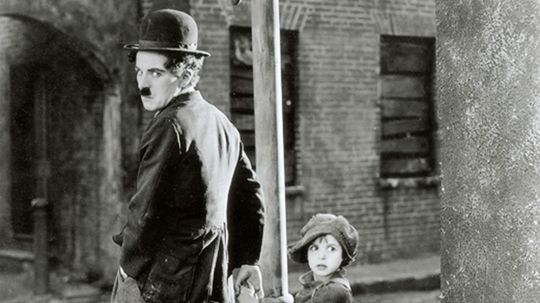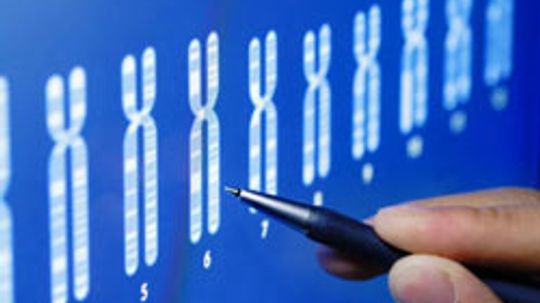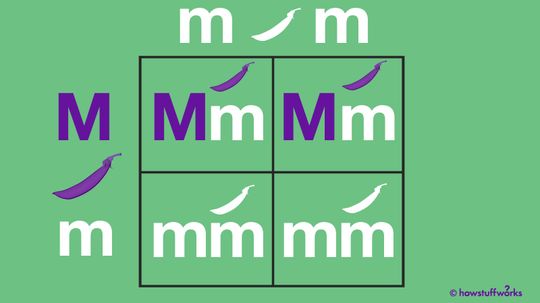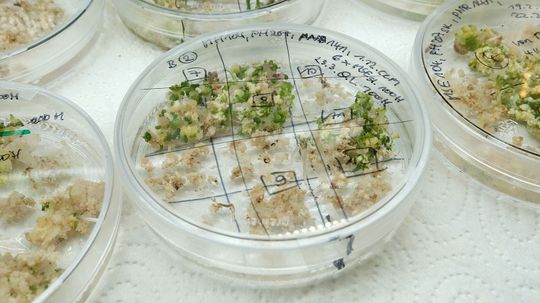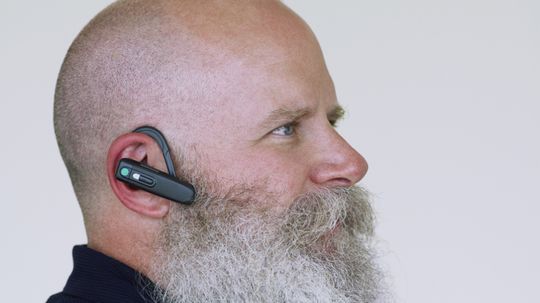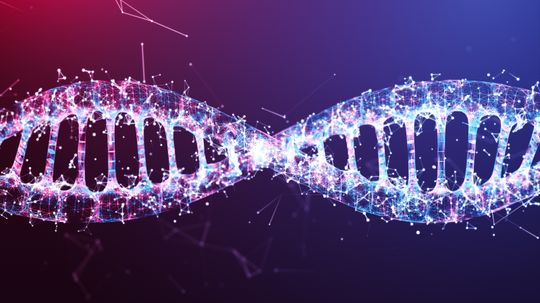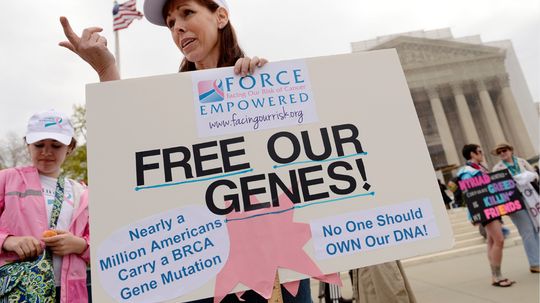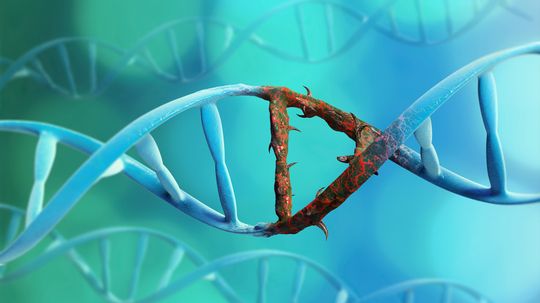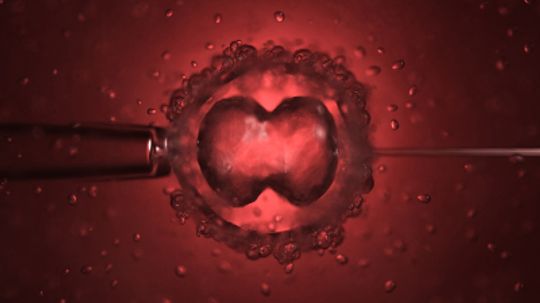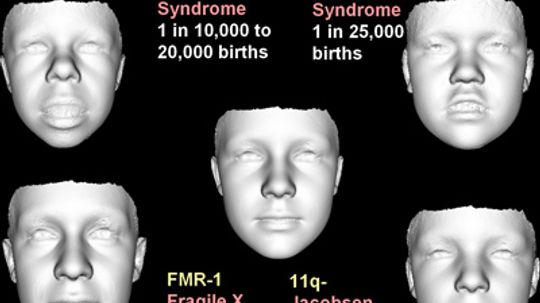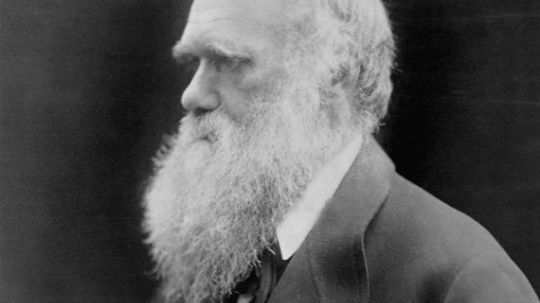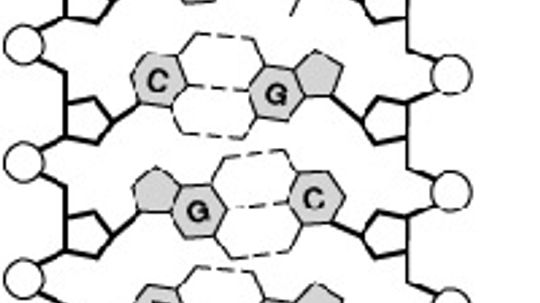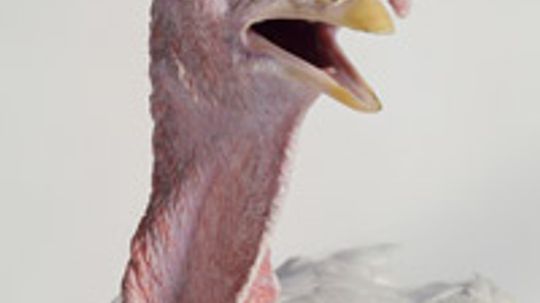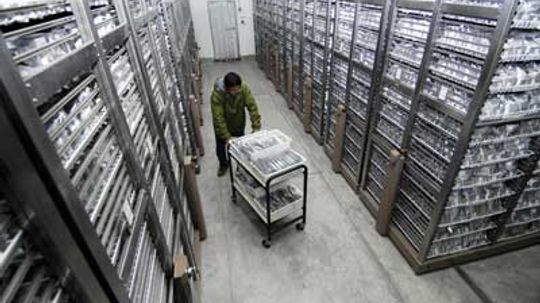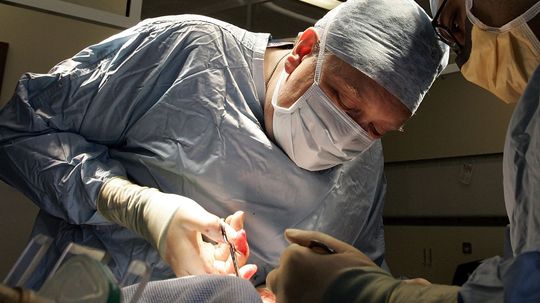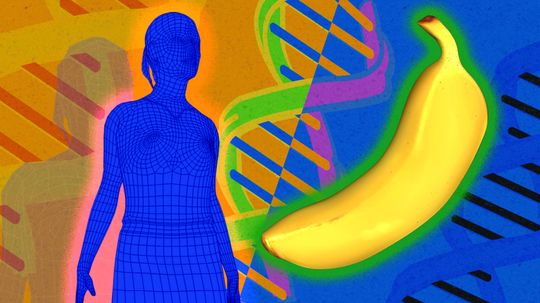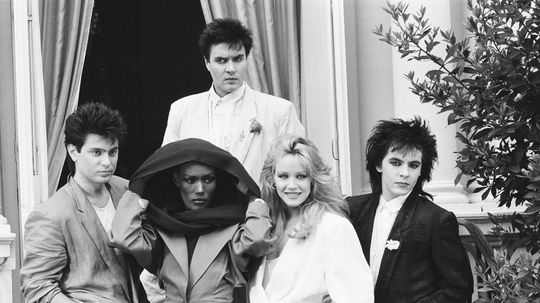Genetic Science
Genetics is the study of cellular science. It furthers our understanding of how DNA and the genetic make-up of species and can lead to cures for diseases and shape our future.

Why do people sing in the shower?

10 Bizarre Treatments Doctors Used to Think Were Legit

Ancient Egyptian Pregnancy Test Survived Millennia Because It Worked
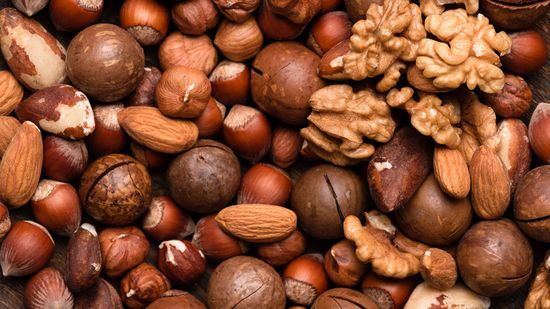
Can You Crack This Nuts Quiz?

The Science Behind Your Cat's Catnip Craze

Corpse Flower: When Nature Deceives

Hypertonic vs. Hypotonic Solutions: Differences and Uses

Your Phone Is a Germ Factory, So Stop Taking It to the Toilet
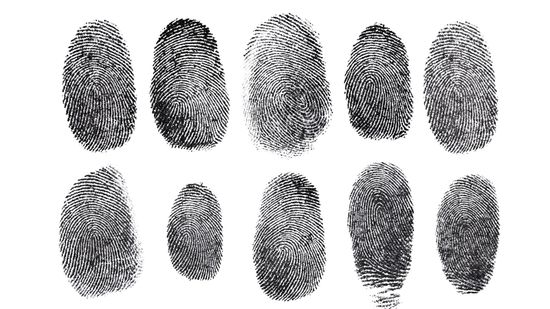
Why Even Identical Twins Have Different Fingerprints

Howstuffworks Interviews: Extinction Level Events with Annalee Newitz

What will the Earth look like in 50,000 years?

How did language evolve?

Differences Between Pet Training and Animal Conditioning

What Is Shadow Work and How Does It, Well, Work?

Why can't we remember being babies?
Learn More
According to the Centers for Disease Control and Prevention, the average height in the United States is 5 feet, 9 inches (1.75 meters) for adult men and 5 feet, 3.5 inches (1.61 meters) for adult women. But some people can reach heights upwards of 7 or 8 feet (2.1 to 2.4 meters)!
By Sascha Bos
Before the widespread use of DNA, establishing the paternity of a child was a tricky business. Ever heard of the oscillophore?
By Dave Roos
After scientists announced the first draft of the human genome, people began to wonder how our new understanding of DNA would change life. Several research institutes stated the accomplishment would revolutionize science and modern medicine -- but how, exactly?
Advertisement
What's more fun than looking at pictures of DNA and celebrities? Check out Dolly, dimples and dominant and recessive traits in this fun gallery charting how genetics play out in humans (and a few animals).
How can children from the same parents look so different? I mean, why don't all kids from the same parents look exactly alike, since the parents just have one set of chromosomes each and they don't change?
A Punnett square helps predict the possible ways an organism will express certain genetic traits, such as purple flowers or blue eyes.
CRISPR is the genius behind innovations that seemed impossible a decade ago. Could you grow tomatoes with the kick of hot sauce or ferment wine that doesn't cause a hangover? That's just two of the things scientists are looking into.
Advertisement
Hair loss affects millions of Americans -- men, women and even children. That's why a recent gene therapy study from a research group at the University of Pennsylvania has many people excited.
Genetic mutations are the instrument by which nature adds new variations to life. If the mutations give rise to advantageous traits, they get passed down through successive generations and can spread throughout the entire population of a species. Evolution just wouldn’t be possible without mutations springing up now and again to bestow new attributes on […] The post 8 Super Cool Genetic Mutations Found In Humans appeared first on Goliath.
By Wes Walcott
We love stories of twins who can sense each other's pain or know what the other is thinking. But is there really such a thing as "twinspiration" or is just coincidence?
Did you know that elements of your genetic code are patented? Companies and researchers can actually lay claim to sequences of genetic code. Is that as scary as it sounds?
Advertisement
What does it take to be considered a genius? Were the Mozarts and Monets of the world born with it? Or did their environment shape who they became?
When the traffic lights are functioning, drivers (usually) behave. Break a light, and everything comes to a standstill. Within our bodies, we could liken that broken traffic light to a DNA mutation — one that has the potential to mess up our body's everyday operations.
We've been raised with the belief that death is inevitable, so we must consider the legacy of what we'll leave behind. But what if you had unlimited time to pursue your life's work? What if you didn't have to die?
Can humans live forever? No, but thanks to the discovery of the Hayflick limit, we know that cells can conceivably divide forever without dying.
By Josh Clark
Advertisement
If your eyes are the windows to your soul, then your face might just be the window to your DNA. An examination of your face shape could determine if you suffer from a genetic disorder.
By Josh Clark
It sounds kind of great, right? Imagine everything you and yourself could get done. You'd be masters of the world -- wouldn't you?
By Robert Lamb
Who hasn't fantasized about bigger biceps? Killer abs? A rear end you could bounce a quarter off? But would you tamper with your genes to achieve that buff body?
How would you like to be the person responsible for changing science and Western civilization? With the "Origin of Species," Charles Darwin did. How did this English gent become the reluctant ambassador of evolution?
By Robert Lamb
Advertisement
More than 50 years have passed since Watson and Crick untangled the structure of DNA and five years have elapsed since scientists finished sequencing the entire human genome. What have we figured out about our genetic material?
That bowling ball of white meat in your oven is a far cry from its wild ancestors. How did a single breed of top-heavy, dim-witted birds come to dominate the turkey market?
Much like Noah, researchers are stockpiling the genes of Earth's living creatures, loading them into state-of-the art facilities and freezing them. Are scientists saving them for a rainy day?
By Robert Lamb
Ever hear that urban legend about waking up without your kidney? Would organ thieves have to find a new line of work if cloned organs became a reality?
Advertisement
You probably feel like you have very little in common with that banana lying on your kitchen counter. But science says you do! So, how is this possible? And is that stat accurate? We talk to the scientist who did the research.
By Alia Hoyt
It's one of those words that might remind you of certain gender-bending musicians from the '80s, but what does it mean today?

